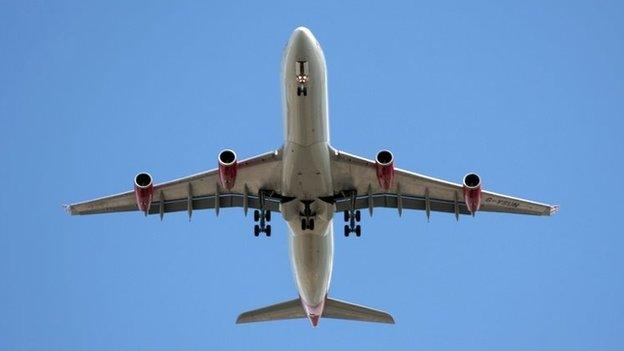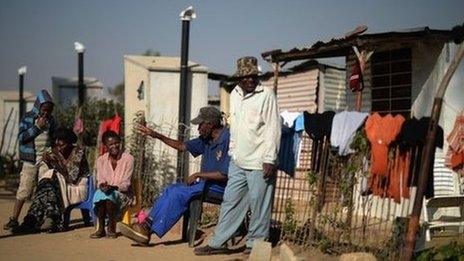UK-funded aid agency under spotlight over spending
- Published

Board members at a UK-funded development agency made large expenses claims, including £5,000 air tickets, the National Audit Office has revealed.
The Private Infrastructure Development Group (PIDG) has also built up a £27m surplus after the British government ramped up its donations.
The NAO has urged ministers to keep a much closer eye on the PIDG's spending.
Recent projects funded by the agency include a steel foundry in Nigeria and a Ugandan hydropower scheme.
The PIDG said it had revised its travel policy, which had seen board members claiming for more expensive flexible business class tickets.
'Outrageous'
But Margaret Hodge, chairman of the Commons Public Accounts Committee, said the Department for International Development (DfID) was to blame for not keeping a tight enough rein on spending.
"It's outrageous that 15 flights were booked from 2011, each costing over £5,000," said Mrs Hodge.
"Only this month has PIDG revised its travel policy. DfID should get a grip on administrative costs like this."
The PIDG was founded in 2002 by four countries - the UK, Switzerland, Holland and Sweden - to back private investment in infrastructure projects in developing countries, including roads, telecoms, sanitation, housing, agriculture, power and industry.
But the UK provides 70% of its funding, which is expected to hit £700m in total by 2015.
UK funding for the agency was increased fivefold by the coalition government in 2011, in line with its policy of encouraging private investment in the developing world.
But the NAO found much of that money had yet to be spent on development projects and the PIDG Trust was sitting on £27m in its bank account.
Tax haven
Amyas Morse, head of the National Audit Office, said: "The Private Infrastructure Development Group is providing important benefits to poor people in difficult environments, but DfID does not have enough good evidence to show that funding PIDG is the best option.
"Furthermore, DfID's financial control has been lacking, allowing the PIDG Trust to hold nearly £27m worth of DfID funding since 2012.
"The department has recently made good progress in tackling these issues, which will put it in a better position to demonstrate value for money, but I consider that it should have taken more action earlier given its decision in 2011 to increase funding for PIDG fivefold."
The report also criticises two of the agency's subsidiaries, GuarantCo and the Emerging Africa Infrastructure Fund (EAIF), set up by then UK Prime Minister Tony Blair in 2002, which are incorporated in the tax haven of Mauritius.
This arrangement has come in from criticism from War on Want, which claims it flies in the face of Prime Minister David Cameron's commitment to tax justice for poor countries. The NAO said it "raises reputational risks" for DfID.
A spokeswoman for DfID said: "The NAO has recognised that we are already improving the group's operations to drive even more job-creating private investment into developing economies, which is the only sustainable way to end dependency on aid.
"Since 2012 we have agreed new financial controls including value for money rules which restrict business class travel and ensure funds are only committed when projects are ready."
- Published30 April 2014

- Published8 January 2014

- Published6 September 2013